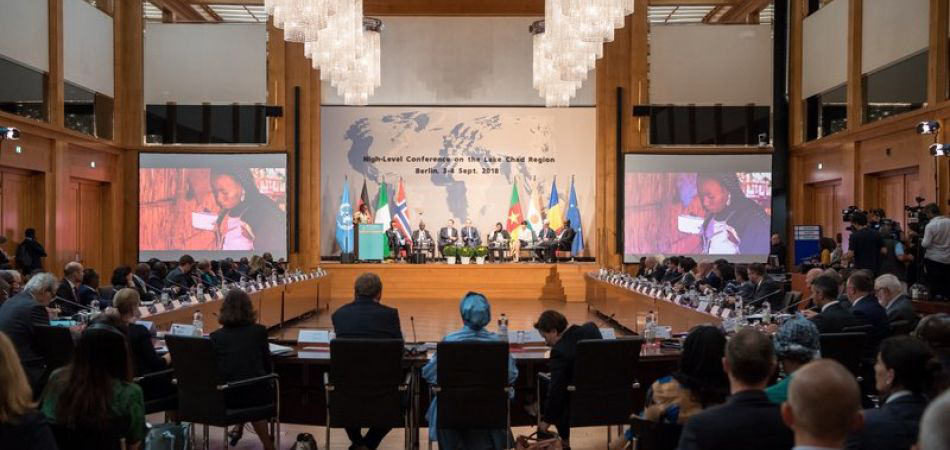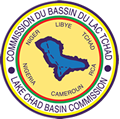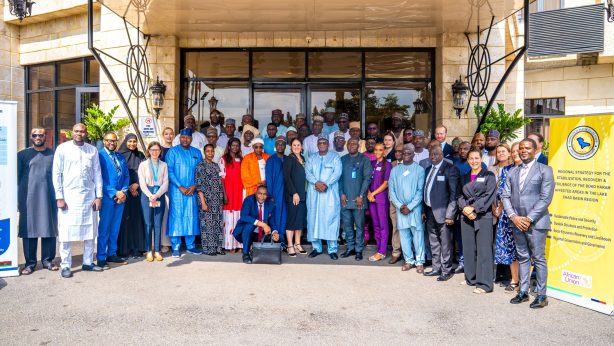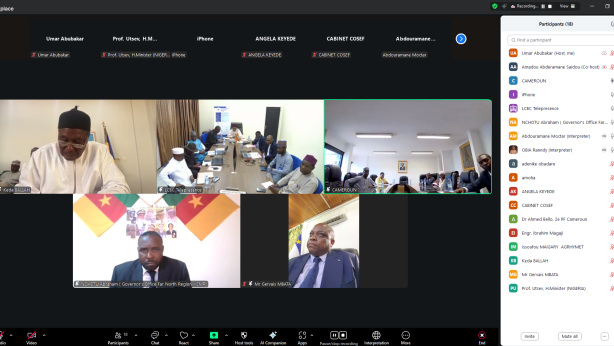BERLIN HIGH-LEVEL CONFERENCE: Donors announce US$2.17 billion in support

Three days after the Abuja Ministerial Conference on the Validation of the Regional Strategy for the Stabilization, Resilience and Recovery of the Areas of the Lake Chad Affected by the Boko Haram Crisis, the International Donors’ Conference for the Countries of this Region (Berlin, Federal Republic of Germany, 3 – 4 September 2018) lived up to its promises. Donors announced US$2.17 billion in grants and US$467 million in preferential loans.
Co-organised by Germany, Nigeria, Norway and the United Nations, this Conference aimed at further galvanising efforts to not only strengthen humanitarian assistance, but also support long-term stabilisation and sustainable development efforts, thereby bailing-out this key region of poverty, vulnerability and insecurity.
More than 70 countries, international and civil society organisations took part in these discussions aimed at bringing peace and stability to the four countries concerned (Cameroon, Niger, Nigeria and Chad). During the two days, participants discussed issues related to humanitarian assistance, crisis prevention and stabilization, and development efforts to define the way forward for a comprehensive and inclusive response. This conference was a step further to Oslo, a year earlier, at the Humanitarian Conference on Nigeria and the Lake Chad Region. Berlin was an excellent opportunity to engage in in-depth discussions on various issues, such as the global and multidimensional nature of this crisis in the Lake Chad region, the crucial role of local stakeholders, cross-border cooperation and ownership at all levels.
Indeed, in February 2017, a first conference on the Lake Chad region, jointly organized by Germany, Nigeria, Norway and the United Nations, was held in Oslo. On that occasion, donors pledged US$672 million for emergency assistance and support programmes for the year 2017 and beyond. The humanitarian response has been considerably strengthened: more than six million people have benefited and famine has been prevented in north-eastern Nigeria.
In addition, the political process initiated on the side-lines of the Oslo Conference focused on regional ownership and cross-border cooperation at all levels. It thus led to the setting-up of the Consultative Group on Prevention and Stabilization in the Lake Chad Region, which should serve as a strategic platform for discussions on crisis prevention and stabilization in the region.
At the same time, important initiatives have been undertaken by the governments of the countries concerned, LCBC, the African Union and many other stakeholders to carry out development actions by integrating more risk tolerance, flexibility and project innovation.
After a first meeting of the Consultative Group in Berlin in September 2017, national stakeholders from the region met in Maiduguri in May 2018 to develop a regional cross-border framework for cooperation. During this session, Governors of the regions affected by this crisis created a permanent forum and formalized their commitment to a regional stabilization strategy. It is on the basis of these achievements and commitments, with the follow-up and coordination process, that the Abuja Ministerial Conference for the adoption of the Regional Strategy for the Stabilization, Resilience and Recovery of the Areas of the Lake Chad Basin Affected by the Boko Haram Crisis took place on 30 August 2018.
As a result of terrorist group abuses, extreme poverty and climate change, more than 17 million people living in north-eastern Nigeria and parts of Cameroon, Chad and Niger are currently facing a complex crisis. More than 2.4 million people have been forced to flee their homes and some 10 million people depend on protection and humanitarian assistance to meet their most basic needs.
In 2018, humanitarian organizations estimated the needs for the region at some US$1.56 billion. Effective development assistance focused on building resilience is also needed. The Berlin conference aimed at consolidating the foundations of the first, by mobilising financial support for humanitarian response, but also stabilising and strengthening the resilience of populations. This includes providing life-saving emergency relief such as food, clean water and shelter; protecting civilians and providing basic services such as health and education; enabling first steps towards reconciliation and identifying approaches to de-radicalization and prevention of violent extremism; reducing people’s risks, needs and vulnerability and reducing their dependence on humanitarian assistance, etc.
As stipulated in the Regional Strategy for the Stabilization, Resilience and Recovery of the Areas of the Lake Chad Basin Affected by the Boko Haram Crisis, this concern to reconcile humanitarian and security imperatives with development objectives, by addressing the root causes, is the best way to address the complex and multidimensional challenges of this region.
Also, in Berlin, discussions focused on how the international community, regional partners and concerned governments could increase their cooperation to jointly address the challenges of the region, with a particular focus on strengthening humanitarian assistance, resilience, crisis prevention and stabilization, and sustainable development.
Speaking during the discussions on Crisis Prevention, Stabilization and Regional Cross-Border Cooperation, the Executive Secretary of LCBC, Ambassador Mamman Nuhu, stressed the importance of having a holistic and inclusive stabilization strategy in the Lake Chad region.
In his remarks, Ambassador Mamman Nuhu stated that “the crisis affecting the Lake Chad region is a complex and regional challenge that only a regional approach based on continental and international organisations and taking into account the efforts of all stakeholders can provide the necessary resources for its realization.” He recalled all the efforts made by LCBC in this regard, efforts that had contributed in particular to strengthening the institutional framework and regional capacities for water resources management but also to the generalization of systemic resilience through the restoration of livelihoods and access to social services. The Executive Secretary also outlined the nature of the medium- and long-term development interventions needed by the region to address vulnerability, reduce risks and operational constraints to implementation.
Ambassador Mamman Nuhu also took advantage of his stay in Berlin to meet and consult with officials of the United Nations Environment Programme (UNEP), the Federal Ministry of Foreign Affairs, the Ministry of Cooperation (BMZ), the German Parliament (the Bundestag) and the German Development Bank (KfW). With all these officials, Ambassador NUHU discussed the mandate of LCBC, the regional stabilization strategy and the support that these various partners may provide to this sub-regional organization for the implementation of its projects and programmes in favour of peace, stability and sustainable development in this vulnerable region.
This promise has therefore been kept for the Berlin Conference to help the countries of the Lake Chad Basin. Donor countries pledged about three times more money than at a similar conference in Oslo in 2017. Germany, the host country, pledged €265 million, while Norway pledged US$125 million. The United States (US$420 million), Switzerland (US$20 million), France (€131 million), Belgium (€45 million), Finland (€2.3 million), Denmark (€72.5 million). The United Kingdom (£146 million), Canada (C$68 million), the European Union (€231.5 million), Luxembourg (€40 million) and Spain (€3.2 million).
In addition to this support of more than US$2 billion, an additional US$467 million will be made available in the form of low-interest loans. Furthermore, Germany stated that it wants to add €100 million in humanitarian aid to the region by 2020, as well as €40 million for conflict prevention and stabilisation in the region. In addition, the Conference agreed on the need for a coherent multi-year approach to integrate all available instruments to address the protection crisis and the root causes of the conflict. Such an approach is essential to pave the way for sustainable and resilient development in the region, thus contributing to a better future for the affected populations.


